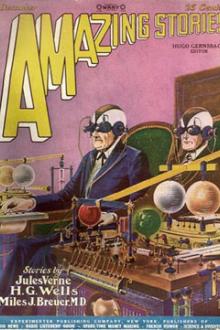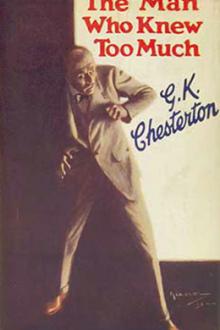Genre Short Story. Page - 20

er. It struck at the root of all things.
'But I do mind,' objected Jelliffe. 'It's most important. A lot of money hangs on it. We've got a sweepstake on in the company, the holder of the winning name to take the entire receipts. Come on. Who is he?'
Henry rose and made for the door. His feelings were too deep for words. Even a minor detective has his professional pride; and the knowledge that his espionage is being made the basis of sweepstakes by his quarry cuts this to the quick.
'Here, don't go! Where are you going?'
'Back to London,' said Henry, bitterly. 'It's a lot of good my staying here now, isn't it?'
'I should say it was--to me. Don't be in a hurry. You're thinking that, now we know all about you, your utility as a sleuth has waned to some extent. Is that it?'
'Well?'
'Well, why worry? What does it matter to you? You don't get paid by results, do you? Your boss said "Trail along." Well, do it, then. I should hate to lose you. I don't suppose you know

easiness, I could not close my eyes. That hateful, hideous Coppelius stood before me with his glittering eyes, smiling maliciously down upon me; in vain did I strive to banish the image. Somewhere about midnight there was a terrific crack, as if a cannon were being fired off. The whole house shook; something went rustling and clattering past my door; the house door was pulled to with a bang. "That is Coppelius," I cried, terror-struck, and leapt out of bed. Then I heard a wild heartrending scream; I rushed into my father's room; the door stood open, and clouds of suffocating smoke came rolling towards me. The servant-maid shouted, "Oh! my master! my master! On the floor in front of the smoking hearth lay my father, dead, his face burned black and fearfully distorted, my sisters weeping and moaning around him, and my mother lying near them in a swoon. "Coppelius, you atrocious fiend, you've killed my father," I shouted. My senses left me. Two days later, when my father was placed in his coffin; his features we

am, is a teetotaller. Yes, m'm; and he don't smoke. Smoking, ma'am," said Jane, as one who reads the heart, "do make such a dust about. Beside the waste of money. And the smell. However, I suppose they got to do it--some of them..."
William was at first a rather shabby young man of the ready-made black coat school of costume. He had watery gray eyes, and a complexion appropriate to the brother of one in a Home for the Dying. Euphemia did not fancy him very much, even at the beginning. His eminent respectability was vouched for by an alpaca umbrella, from which he never allowed himself to be parted.
"He goes to chapel," said Jane. "His papa, ma'am----"
"His what, Jane?"
"His papa, ma'am, was Church: but Mr. Maynard is a Plymouth Brother, and William thinks it Policy, ma'am, to go there too. Mr. Maynard comes and talks to him quite friendly when they ain't busy, about using up all the ends of string, and about his soul. He takes a lot of notice, do Mr. Mayn

it a bit," replied Fauchery. "I certainly must make theacquaintance of your Nana before talking about her. Besides, I'vemade no promises."
Then to put an end to the discussion, he introduced his cousin, M.Hector de la Faloise, a young man who had come to finish hiseducation in Paris. The manager took the young man's measure at aglance. But Hector returned his scrutiny with deep interest. This,then, was that Bordenave, that showman of the sex who treated womenlike a convict overseer, that clever fellow who was always at fullsteam over some advertising dodge, that shouting, spitting, thigh-slapping fellow, that cynic with the soul of a policeman! Hectorwas under the impression that he ought to discover some amiableobservation for the occasion.
"Your theater--" he began in dulcet tones.
Bordenave interrupted him with a savage phrase, as becomes a man whodotes on frank situations.
"Call it my brothel!"
At this Fauchery laughed approvingly, while La Faloise stopped with

g. But as soon as he says something, passes on information in an altered form, or merely expresses an attitude--he becomes a reference point. He can be marked, measured and entered on a graph. His actions can be grouped with others and the action of the group measured. Man--and his society--then becomes a systems problem that can be fed into a computer. We've cut the Gordian knot of the three-L's and are on our way towards a solution."
* * * * *
"Stop!" Costa said, raising his hand. "I was with you as far as the 3L's. What are they? A private code?"
"Not a code--abbreviation. Linear Logic Language, the pitfall of all the old researchers. All of them, historians, sociologists, political analysts, anthropologists, were licked before they started. They had to know all about A and B before they could find C. Facts to them were always hooked up in a series. Whereas in truth they had to be analyzed as a complex circuit complete with elements like positive and negative feedback, and crossover sw

plied incoherently and evasively; it was as if he knew something terrible, something dreadful, but did not wish to speak of it. Eventually he retired to his own apartments, but it was not until several hours had passed that he returned to his normal condition of mind.
The same doctor who had been summoned on the occasion of Wilhelm's former encounter with the White Lady was in attendance on him, and he looked extremely grave when informed that the Emperor had again experienced a mysterious shock. He shut himself up alone with his royal patient, forbidding any one else access to the private apartments. However, in spite of all precautions, the story of what had really occurred in the picture gallery eventually leaked out--it is said through a maid of honour, who heard it from the Empress.
The third appearance of the White Lady of the Hohenzollerns to the Kaiser did not take place at either of the palaces, but strangely enough, in a forest, though exactly where situated has not been satisfactorily

"That is Mt. Togonda," he answered, pointing to the hills before them, "and this," swinging his hand around the plateau on which the camp's tents were pitched, "is La Plaza del Carabaos."
The captain's eyes met those of Lieutenant Smith.
"La Plaza del Carabaos" means "The Square of the Water Buffalos."
As if with one thought the two men turned and looked out to sea. The sun had set. Against the glowing western sky a huge rock at the plateau's farthest limit was outlined. Rough-carved as the rock had been by the chisel of nature, the likeness to a water buffalo's head was striking. Beyond the rock three islands lay in a line upon the sunset-lighted water. Far out from the foot of the cliff the two men could hear the waves beating upon the sand.
"This is an excellent place for a camp," the captain said when he turned to his men again. "I think we shall find it best to stay here for some time."
Perhaps a month of respite from attack had made the sentries careless; perhap

Rozaine, gloomy and reserved, and thought of the double role that he was playing, I accorded him a certain measure of admiration.
On the following evening, the officer on deck duty heard groans emanating from the darkest corner of the ship. He approached and found a man lying there, his head enveloped in a thick gray scarf and his hands tied together with a heavy cord. It was Rozaine. He had been assaulted, thrown down and robbed. A card, pinned to his coat, bore these words: "Arsène Lupin accepts with pleasure the ten thousand francs offered by Mon. Rozaine." As a matter of fact, the stolen pocket-book contained twenty thousand francs.
Of course, some accused the unfortunate man of having simulated this attack on himself. But, apart from the fact that he could not have bound himself in that manner, it was established that the writing on the card was entirely different from that of Rozaine, but, on the contrary, resembled the handwriting of Arsène Lupin as it was reproduced in an o

d. He could almost remember verbatim his answer:
"No, Gnut has neither moved nor been moved since the death of his master. A special point was made of keeping him in the position he assumed at Klaatu's death. The floor was built in under him, and the scientists who completed his derangement erected their apparatus around him, just as he stands. You need have no fears."
Cliff smiled again. He did not have any fears.
A moment later the big gong above the entrance doors rang the closing hour, and immediately following it a voice from the speakers called out "Five o'clock, ladies and gentlemen. Closing time, ladies and gentlemen."
The three scientists, as if surprised it was so late, hurriedly washed their hands, changed to their street clothes and disappeared down the partitioned corridor, oblivious of the young picture man hidden under the table. The slide and scrape of the feet on the exhibition floor rapidly dwindled, until at last there were only the steps of the two guards walkin

oking for them here."
March thought of asking him what he was looking for; but, feeling unequalto a technical discussion at least as deep as the deep-sea fishes,he returned to more ordinary topics.
"Delightful sort of hole this is," he said. "This little delland river here. It's like those places Stevenson talks about,where something ought to happen."
"I know," answered the other. "I think it's because the place itself,so to speak, seems to happen and not merely to exist.Perhaps that's what old Picasso and some of the Cubists are tryingto express by angles and jagged lines. Look at that wall likelow cliffs that juts forward just at right angles to the slopeof turf sweeping up to it. That's like a silent collision.It's like a breaker and the back-wash of a wave."
March looked at the low-browed crag overhanging the greenslope and nodded. He was interested in a man who turnedso easily from the technicalities of science to those of art;and asked him if he admired the new angular art